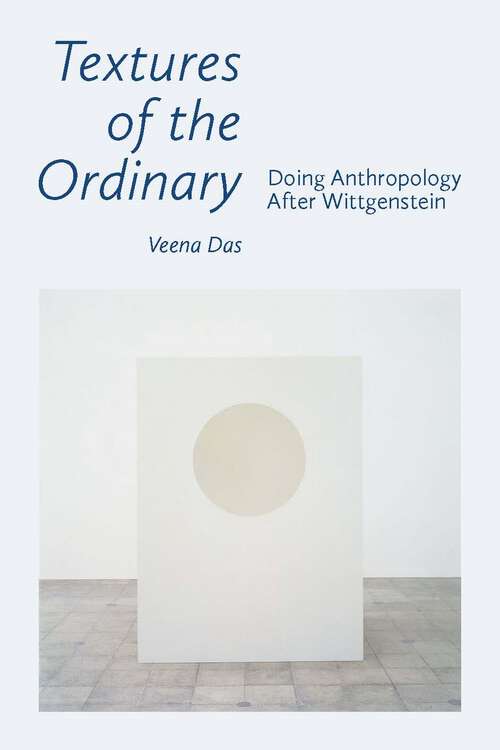
Textures of the Ordinary: Doing Anthropology after Wittgenstein (Thinking from Elsewhere)
Asian history, Philosophy
Synthetic audio, Automated braille
Summary
How might we speak of human life amid violence, deprivation, or disease so intrusive as to put the idea of the human into question? How can scholarship and advocacy address new forms of war or the slow, corrosive violence that… belie democracy's promise to mitigate human suffering? To Veena Das, the answers to these question lie not in foundational ideas about human nature but in a close attention to the diverse ways in which the natural and the social mutually absorb each other on a daily basis. Textures of the Ordinary shows how anthropology finds a companionship with philosophy in the exploration of everyday life. Based on two decades of ethnographic work among low-income urban families in India, Das shows how the notion of texture aligns ethnography with the anthropological tone in Wittgenstein and Cavell, as well as in literary texts. Das shows that doing anthropology after Wittgenstein does not consist in taking over a new set of terms such as forms of life, language games, or private language from Wittgenstein’s philosophy. Instead, we must learn to see what eludes us in the everyday precisely because it is before our eyes. The book shows different routes of return to the everyday as it is corroded not only by catastrophic events but also by repetitive and routine violence within everyday life itself. As an alternative to normative ethics, this book develops ordinary ethics as attentiveness to the other and as the ability of small acts of care to stand up to horrific violence.Textures of the Ordinary offers a model of thinking in which concepts and experience are shown to be mutually vulnerable. With questions returned to repeatedly throughout the text and over a lifetime, this book is an intellectually intimate invitation into the ordinary, that which is most simple yet most difficult to perceive in our lives.